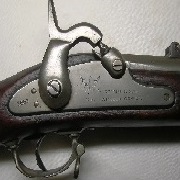|
How did sergeant as a word come to mean NCO instead of "an armed dude?" Also, I think it was this thread that told me that peasant conscription as cannon fodder wasn't really a thibg since peasants form the basis of your economy and losing them is bad. God drat it, pre industrial warfare so loving confusing. I don't really get it how it happens in Europe, I have no loving clue how those strange Asian formations are supposed to work, and I bet Africa would be no less frustrating. All hail centralization, bureaucracy and standing armies.
|
|
|
|

|
| # ? Jun 3, 2024 18:22 |
|
I think peasant involvement in armies really varies in location and time. And how you define peasant. My understanding is that the lowest serfs were rarely involved in fighting, but villeins often were. And things were much different after the black death, obviously. Fangz fucked around with this message at 17:45 on May 19, 2018 |
|
|
|
JcDent posted:How did sergeant as a word come to mean NCO instead of "an armed dude?" edit: ok google says i am wrong, so derp. In my defense, 17th century Germans use Sergeant and Chargeant interchangeably HEY GUNS fucked around with this message at 17:38 on May 19, 2018 |
|
|
|
JcDent posted:How did sergeant as a word come to mean NCO instead of "an armed dude?" https://www.etymonline.com/word/sergeant
|
|
|
|
Rodrigo Diaz posted:
Something similar to this tended to happen in the German Empire and the early Holy Roman Empire: I remember reading how you could pay yourself out of your liege-lords war service by just directly paying tons of money. So if you were a noble who was poo poo at dealing with war and good at dealing with traders, you could pay money instead of sending troops when the Kaiser called to arms. (Of course I expect this did not extend down to individual soldiers. At the most granular, I expect something like a knight with his couple dozen personal retainers could pull this stunt.) On peasants in wartime: In German lands (and probably other feudal lands, too) it developed over time that peasants, if we're talking about agricultural workers, there were basically two different classes of peasants. First, the free, which had a lot more rights than a lay person of today would expect when hearing "medieval peasant", but who where duty bound to show up as soldiers in wartime. Second, the serfs. Serfdom essentially happened because the free slowly realized they would starve if they kept going to war for their liege instead of tending to their farms. So they basically "sold" themselves into serfdom, which meant now they had a lot less rights but were allowed to stay at home on their fields instead of going of to war. This caused the feudal system to slowly degenerate until you had reached the ludicrous endpoint where the Duke of Celle during the 30 Years War had something like a dozen personal retainers and if he had called upon all his feudal subjects to send him troops, he would have probably got like 100 dudes max out of the deal. Which is probably why everyone and their uncle was raising mercenary armies instead: The old feudal system had decayed to the breaking point and an expensive standing army still beats having to call to arms your subjects, only to end up with zero armies instead.
|
|
|
|
Thanks Rodrigo Diaz that was informative. So what I sort of am getting from this is that the bulk of soldiers in the Middle Ages were professionals, however its not clear how they ended up soldiers. They usually were paid in cash, but a lot of them had side jobs. So look at them in sort of a way kinda like modern day reservists? So like a lot of modern reservists they still consider themselves soldiers ahead of whatever civilian profession they may have. They fought or did other tasks for their employer, but also had to support themselves doing something when they weren't under arms, outside of some groups who were able to find work under arms 24/7.
|
|
|
|
13th KRRC War Diary, 19th May 1918 posted:In the morning vaarious inspections were carried out by Company Commanders, and being Sunday the men were allowed to attend any of the Services which were held.
|
|
|
|
Jack2142 posted:Thanks Rodrigo Diaz that was informative. You're trying to fit this into modern society, where there's harder lines (at least in the west) between "soldier" and "civilian." But it's a totally different context and mindset. Medieval warriors wouldn't have thought of themselves like this. To take one narrow example, an employee/retainer of Henry V's household might have carried out his duties as a tailor 95% of his life, but he also would have accompanied the king on campaign and fought in combat as an archer. He wouldn't have thought of himself as in reserve when he was working as a tailor; he was carrying out his role as a retainer of the king regardless of whether he was sewing up doublets or shooting arrows at French people.
|
|
|
|
Jack2142 posted:Thanks Rodrigo Diaz that was informative. I know people in this thread hate the term "early modern military revolution", and Patrick Wyman is more of an economic historian with clear capitalist biases, but his two podcast episodes are a great intro to how this works during the 15th - 16th centuries.
|
|
|
|
golden bubble posted:I know people in this thread hate the term "early modern military revolution", and Patrick Wyman is more of an economic historian with clear capitalist biases, but his two podcast episodes are a great intro to how this works during the 15th - 16th centuries. according to twitter he also hates "phantom menace"
|
|
|
|
Grenrow posted:You're trying to fit this into modern society, where there's harder lines (at least in the west) between "soldier" and "civilian."
|
|
|
|
What sort of people were you not permitted to mistreat?
|
|
|
|
Night10194 posted:What sort of people were you not permitted to mistreat? If this was earlier in European history then I would say clergy but during the 30 years war I would not give much for their chance of survival.
|
|
|
|
Night10194 posted:What sort of people were you not permitted to mistreat? google Peace of God, it's the same thing
|
|
|
|
HEY GUNS posted:clergy, young women, pregnant women, and do not steal things belonging to a church Unless the clergymen show up to fight on the battlefield, then it's their loving problem if they get themselves killed (at least in the medieval period). I can't remember whether it was Crecy or Agincourt where some French bishop died, but i think it was one of those.
|
|
|
|
Grenrow posted:Unless the clergymen show up to fight on the battlefield, then it's their loving problem if they get themselves killed (at least in the medieval period). I can't remember whether it was Crecy or Agincourt where some French bishop died, but i think it was one of those. Battle of Agincourt, the Archbishop of Sens. It's interesting because an earlier Archbishop of Sens was captured at the battle of Potiers. Epicurius fucked around with this message at 02:51 on May 20, 2018 |
|
|
|
I remember in art history we talked about a pope that was a badass on the battlefield, which one was that?
|
|
|
|
Ensign Expendable posted:I remember in art history we talked about a pope that was a badass on the battlefield, which one was that? Benedict XVI was a powerful Sith lord, so probably him.
|
|
|
|
There's an art history thread and I wasn't informed?
|
|
|
|
Epicurius posted:Battle of Agincourt, the Archbishop of Sens. It's interesting because an earlier Archbishop of Sens was captured at the battle of Potiers. drat, that is not a lucky seat to hold.
|
|
|
|
HEY GUNS posted:i no longer use the word civilian, i've been going through the rough draft of my dissertation and removing it. it assumes that non-soldiers do not do a violence, which is untrue, and it treats all non-soldiers as similar, which contemporary soldiers didn't. contemporary Articles of War mention specific categories of people you are not allowed to mistreat, but not "civilians"  Ensign Expendable posted:I remember in art history we talked about a pope that was a badass on the battlefield, which one was that? Pope Julius II was known as the Warrior Pope but I don't recall if he actually commanded armies personally or just conducted a lot of war. Erasmus (alleged author anyways) wrote a dialogue right after he died where Julius shows up at the pearly gates in bloody armor and he threatens to have St. Peter excommunicated and to raise an army to capture heaven after he's denied entry for his myriad sins.
|
|
|
|
Ensign Expendable posted:I remember in art history we talked about a pope that was a badass on the battlefield, which one was that? Julius II, nicknamed "The Warrior Pope", aka, the guy who was constantly annoying Michelangelo? He led troops into battle, at least, and was fairly successful. Leo IX commanded troops against the Normans at the Battle of Civitate, but lost and was taken prisoner, in spite of the fact that his troops outnumbered the Normans two to one, and the Norman troops were out of supplies and hungry. Those were the only two popes I can think of that fought in battles as popes, although others did so before they became popes. Robert of Geneva, for instance, an antipope who ruled as Clement VII, when he was Papal Legate, commanded troops in the War of the Eight Saints, capturing the city of Cesena, and massacring the population, which got him nicknamed the Butcher of Cesena. Benedict XVI was drafted into the Luftwaffe as a member of the crew of a flak gun, but deserted before seeing combat. But my guess is Julius II.
|
|
|
|
Ensign Expendable posted:I remember in art history we talked about a pope that was a badass on the battlefield, which one was that? julius II
|
|
|
|
Epicurius posted:Benedict XVI was drafted into the Luftwaffe as a member of the crew of a flak gun, but deserted before seeing combat.
|
|
|
|
Grenrow posted:You're trying to fit this into modern society, where there's harder lines (at least in the west) between "soldier" and "civilian." But it's a totally different context and mindset. Medieval warriors wouldn't have thought of themselves like this. To take one narrow example, an employee/retainer of Henry V's household might have carried out his duties as a tailor 95% of his life, but he also would have accompanied the king on campaign and fought in combat as an archer. He wouldn't have thought of himself as in reserve when he was working as a tailor; he was carrying out his role as a retainer of the king regardless of whether he was sewing up doublets or shooting arrows at French people. It depends. Don't forget about man-at-arms. Whom were professional soldiers. That's what they did for a living.
|
|
|
|
HEY GUNS posted:john paul II was menaced by soldiers, harassed by combat, and imprisoned, but not a soldier himself. Right. Also Paul VI was a lieutenant in the Italian army in WWI, and John XXIII was a sergeant in the medical corps and a chaplain.
|
|
|
|
Acebuckeye13 posted:There's an art history thread and I wasn't informed? This was a class, but if there's a thread I'll be glad to post half-remembered stuff I learned there in it.
|
|
|
|
Ensign Expendable posted:I remember in art history we talked about a pope that was a badass on the battlefield, which one was that? Are you sure you're not thinking of the BattlePope?
|
|
|
|
EvilMerlin posted:It depends. Don't forget about man-at-arms. Whom were professional soldiers. But not everyone who could be described as a man-at-arms was a full-time professional. Many of them were, but others might go back home in between campaigns, or work as a professional for a few years before going back home and using their loot to buy some land and live comfortably. A man-at-arms on retainer might be an aristocrat's court functionary or serve some other role when the aristocrat was not at war and only went to fight when their master did. There's a broad swathe of semi-professional soldiers who make up medieval armies in addition to the full-timers who spent full careers in arms.
|
|
|
|
HEY GUNS posted:i no longer use the word civilian, i've been going through the rough draft of my dissertation and removing it. it assumes that non-soldiers do not do a violence, which is untrue, and it treats all non-soldiers as similar, which contemporary soldiers didn't. contemporary Articles of War mention specific categories of people you are not allowed to mistreat, but not "civilians" Is it reasonable to infer from their inclusion in the Articles of War that these classes of people were, in fact, mistreated?
|
|
|
|
Grenrow posted:You're trying to fit this into modern society, where there's harder lines (at least in the west) between "soldier" and "civilian." But it's a totally different context and mindset. Medieval warriors wouldn't have thought of themselves like this. To take one narrow example, an employee/retainer of Henry V's household might have carried out his duties as a tailor 95% of his life, but he also would have accompanied the king on campaign and fought in combat as an archer. He wouldn't have thought of himself as in reserve when he was working as a tailor; he was carrying out his role as a retainer of the king regardless of whether he was sewing up doublets or shooting arrows at French people. You make a good point that medieval society conceived of combatants and noncombatants differently, but l don't totally agree with your assessment. The first is that I'd be surprised if the king's personal tailor was called up for feudal service. Seems like the kind of post where you'd be set for life. That's more a query than a real disagreement. Anyway, on to the meat: I'd be really surprised if as much as 95% of his professional life was spent as a tailor. In addition to training, which would take up a bit of his time every week, he would have been expected to take part in both the 1415 campaign and the 1417-1420 campaign, as well as the subsequent campaigns under Henry VI and maybe Hotspur's war prior. I bring this up not to be pedantic but to highlight that just because someone isn't a soldier all the time doesn't mean it isn't a part of their identity that might overshadow their other profession. I bring this up in thinking about both how modern veterans conceive of themselves but also medieval and early modern ones. Urs Graf is a particularly illustrative example: an artist and goldsmith who seems to have set a huge part of his identity in his time as a reislaufer. Grenrow posted:But not everyone who could be described as a man-at-arms was a full-time professional. Many of them were, but others might go back home in between campaigns, or work as a professional for a few years before going back home and using their loot to buy some land and live comfortably. A man-at-arms on retainer might be an aristocrat's court functionary or serve some other role when the aristocrat was not at war and only went to fight when their master did. There's a broad swathe of semi-professional soldiers who make up medieval armies in addition to the full-timers who spent full careers in arms. I agree with you here, but am not sure I'd apply the term semi-professional to retainers who also serve other roles, since they would presumably still be expected to keep their skills up. Like, I wouldn't consider Templars semi-professional even though they spent more time praying than actually on campaign.
|
|
|
|
how did people in the time periods you're speaking of deal with ptsd? did they even recognize it as existing?
|
|
|
|
Mycroft Holmes posted:how did people in the time periods you're speaking of deal with ptsd? did they even recognize it as existing? I'm blanking on the source right now but there are some pretty  accounts of French knights (I think?) exhibiting symptoms that the modern reader can pretty clearly interpret as PTSD. From what I recall it was pretty recognized that people could get hosed up by combat but it didn't have the label or quite the weight that we give it today. accounts of French knights (I think?) exhibiting symptoms that the modern reader can pretty clearly interpret as PTSD. From what I recall it was pretty recognized that people could get hosed up by combat but it didn't have the label or quite the weight that we give it today.
|
|
|
|
Grenrow posted:But not everyone who could be described as a man-at-arms was a full-time professional. Many of them were, but others might go back home in between campaigns, or work as a professional for a few years before going back home and using their loot to buy some land and live comfortably. A man-at-arms on retainer might be an aristocrat's court functionary or serve some other role when the aristocrat was not at war and only went to fight when their master did. There's a broad swathe of semi-professional soldiers who make up medieval armies in addition to the full-timers who spent full careers in arms. But their primary job/responsibility was fighting war. They had full harness, they had swords, horses and retainers. Yep, they went on campaigns. Yep, they went home, but often they were still involved in some type of martial role when home, like a weapons instructor, a sheriff, bailiff etc.
|
|
|
|
JcDent posted:How did sergeant as a word come to mean NCO instead of "an armed dude?" Sergeant developed into that in the latter middle ages. Soldier sergeants started as the servants of the nobility or knighthood that could fight as needed. Keep in mind too, the reason that Crecy and Agincourt went the way of the English is specifically because they had a full and well vetted chain-of-command that worked well under the heat of battle. The French? Nope. They didn't. Not even close. The Nobility were itching for a fight and ruined combat lines to get into the fight.
|
|
|
|
fishmech posted:Aren't a lot of those in some manner of use though? Really a huge amount of infrastructure and material got left behind in the Pacific because it wasn't worth the cost of demolishing it or moving it back to the US. A lot was simply dumped into the ocean or left to rot in the jungle. The Pacific is absolutely littered with old bunkers and tanks. It turns out things designed to survive being hit by large caliber gunfire are really difficult to demolish. Edit: Also littered with UXO. Tons and tons of UXO. Rent-A-Cop fucked around with this message at 20:36 on May 20, 2018 |
|
|
|
Is there a war that exhausted the sides so much that the tech level went down during the conflict? Like, the WWI might have had ehat one LP goon called "ulcer battalions" of not really service level troops, but the technology level increased during the war; same goes for WWII. I think someone mentioned that the matchlocks from the end of 30yw were much cruder because everything was so exhausted, but I dunno anything similar anywhere else. It's like WWIII sans nuke: precision munitions and good tanks are out within a week, and you're scrambling to get the mothballed poo poo back in service.
|
|
|
|
JcDent posted:I think someone mentioned that the matchlocks from the end of 30yw were much cruder because everything was so exhausted, but I dunno anything similar anywhere else. I mean, peep you a 1945-built German or Japanese service rifle compared to prewar production.
|
|
|
|
I mean in the modern day I think one could make an argument that big chunks of Afghanistan are in a worse state then they were in the 1970's.
|
|
|
|

|
| # ? Jun 3, 2024 18:22 |
|
JcDent posted:Is there a war that exhausted the sides so much that the tech level went down during the conflict? Like, the WWI might have had ehat one LP goon called "ulcer battalions" of not really service level troops, but the technology level increased during the war; same goes for WWII. I don't think so on any large scale, yet. There are always neighboring countries not getting devastated still producing and innovating. Germany probably came pretty close post WWII, but foreign investment and assistance pulled them out of it quickly. You would need something like full blown nuclear war to knock out global infrastructure and administrative chains to actually reduce the tech levels across the globe.
|
|
|
































